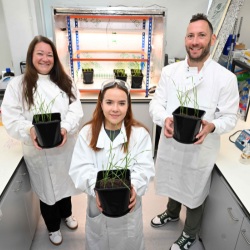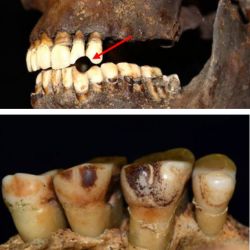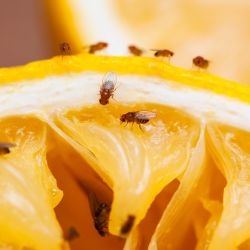Northumbria expands results day support for students
Northumbria University is expanding and enhancing the support it provides to students receiving…
International
Northumbria’s global footprint touches every continent across the world, through our global partnerships across 17 institutions in 10 countries, to our 277,000 strong alumni community and 150 recruitment partners – we prepare our students for the challenges of tomorrow. Discover more about how to join Northumbria’s global family or our partnerships.
View our Global FootprintBusiness
The world is changing faster than ever before. The future is there to be won by organisations who find ways to turn today's possibilities into tomorrows competitive edge. In a connected world, collaboration can be the key to success.
More on our Business ServicesResearch
Northumbria is a research-rich, business-focused, professional university with a global reputation for academic quality. We conduct ground-breaking research that is responsive to the science & technology, health & well being, economic and social and arts & cultural needs for the communities
Discover more about our ResearchAlumni
Northumbria University is renowned for the calibre of its business-ready graduates. Our alumni network has over 253,000 graduates based in 178 countries worldwide in a range of sectors, our alumni are making a real impact on the world.
Our AlumniLong term health – ‘Mum’s’ the word – or is it?
Jill McKay 01/08/23
Most of us know there are certain behaviours and lifestyle choices we make that can affect our health, such as smoking increasing the risk of lung cancer or high alcohol intake affecting liver health. But for a pregnant woman, it is not only her health that can be affected, but that of her baby too. Whilst most Mums-to-be are likely to know that quitting drinking and smoking while pregnant is a good idea, what they might not know is that what they eat whilst pregnant might affect the long-term health of their baby too.
Since the 1990’s there have been an explosion of studies investigating this idea, and it has gained quite the following. Many studies have been conducted which suggest that suboptimal diets during pregnancy can influence the health of babies in later life. Some key findings have been made by delving into history. During World War 2, regions in the West of the Netherlands were occupied by German forces, leading to a period of famine between 1944-45. Researchers have used this period as a ‘natural experiment’ to understand the impact of famine during pregnancy of the long-term health of offspring. They have found that the children born to mothers affected by this famine whilst pregnant are more likely to be diabetic, obese, have cardiovascular disease and mental health disorders.
Whilst this is an extreme example of under nutrition, many other studies suggest that low levels of particular nutrients (i.e. specific vitamins) may be enough to affect later life health of children. It has been long known that supplementation with the B vitamin folic acid during the pre- and early stages of pregnancy protects against the development of neural tube defects such as spina bifida in children. However, newer studies show that continual supplementation through pregnancy may be beneficial for improved neurocognition in children, including language, communication and motor skills, and may even reduce the likelihood of autism.
But it is not just a lack of food that can be harmful – over nutrition has also been shown to have health effects. Maternal over-weight and high fat diets during pregnancy have been observed to lead to high blood pressure in offspring, which itself is a risk factor for diabetes and cardiovascular diseases. In mice, diets high in the sugar fructose, which is found in fruits and sugar sweetened beverages, has been found to have similar effects. Therefore, the age-old saying that you should ‘eat for two’ whilst pregnant might not be the best advice.
But before you blame your Mum for all your aliments, new emerging studies are also beginning to suggest that it is not only your mother’s diet that may have shaped your health, but Dad’s and Grandparents too! Most of these paternal and transgenerational studies are in their infancy but are likely to help us understand how diets through the generations can affect our health.
So, what is the real answer to long term health? Well, the truth is, it’s complicated. It is likely that all of these factors contribute to health, and we still have a lot to learn. But by far the best way to look after your own health as well as that of you children and grandchildren to come is to adhere to a healthy diet, plentiful of fruit, vegetables and fibre, whilst low in saturated fat and sugar…. Your children and grandchildren may thank you for it!
Click on the links for more from Dr McKay on maternal diets, the epigenome and human health.

Northumbria University is expanding and enhancing the support it provides to students receiving…

With the global population expected to reach 10 billion by 2050 and crop yields declining annually,…

An Assistant Professor at Northumbria University won the Royal Society of Chemistry’s Award…

Researchers from Northumbria University have discovered that smokers have tell-tale signs of…

Northumbria University has been named Higher Education Institution of the Year at a prestigious…

Two biomedical sciences researchers from Northumbria University have been awarded grants to…

The Spring 2025 edition of Northumbria University’s newspaper is available to collect on campus…

Scientists have discovered that flies can demonstrate play-like behaviour – the first time…